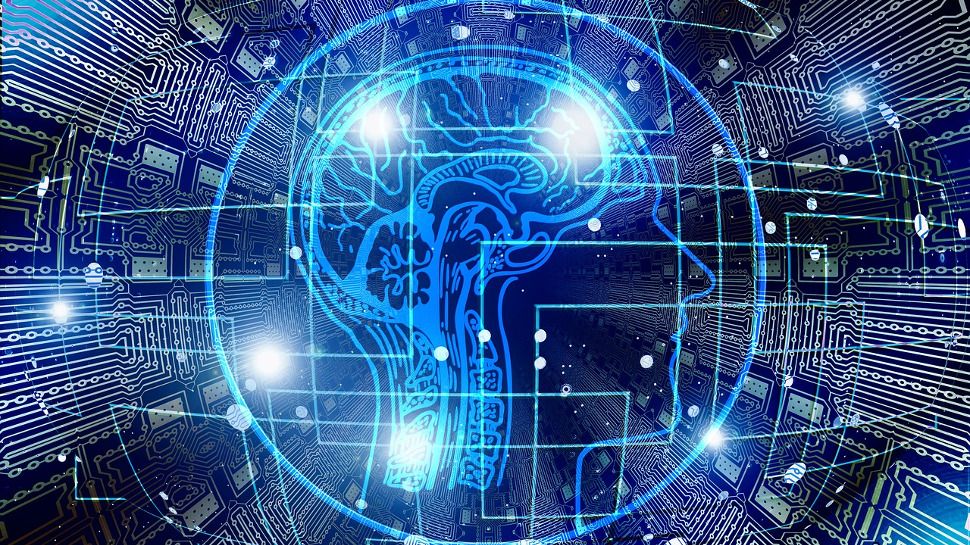The world of science is present process a profound transformation, pushed by speedy advances in digitalization and synthetic intelligence.
There was a time when house statement and discovery relied on people or small, extremely specialised tutorial groups; We at the moment are coming into an period the place synthetic intelligence and knowledge applied sciences play a central and collaborative position in the way in which analysis is carried out.
Meanwhile, digital platforms are unlocking entry to huge, beforehand siled knowledge units, whereas AI permits researchers to course of and interpret them in actual time.
In astronomy particularly, these applied sciences are already reshaping the scientific panorama, accelerating advances and democratizing participation in house science.
For organizations working in knowledge infrastructure, cloud providers or scientific analysis, this alerts a shift in direction of a quicker, extra related and extra open analysis economic system than ever earlier than.
The Impact of AI on Real-Time Data Sensing and Processing
Artificial intelligence is totally revolutionizing the way in which we observe house. As telescopes just like the Vera C. Rubin Observatory and missions like Euclid generate unprecedented volumes of information, AI turns into indispensable.
Traditional strategies merely can’t sustain with the amount, complexity and velocity required to extract insights from this fixed stream of data.
There are radio antennas that gather lots of of terabytes of information each evening; In the previous, researchers needed to wait weeks to course of a sign and decide its that means. Now, AI allows near-instant evaluation, dramatically dashing up the method.
Anomalies and celestial occasions that might point out extraterrestrial civilizations might be flagged and verified in actual time. What as soon as required a lab filled with researchers for a lot of days can now be achieved utilizing a real-time AI mannequin.
AI capabilities now go far past detection. For instance, it improves picture decision, improves knowledge high quality, and digs deep into archival databases to uncover long-overlooked phenomena.
A latest student-led venture utilizing AI analyzed years of observational knowledge and recognized greater than 1.5 million potential new astronomical targets. The scale and scope of such discoveries would have been inconceivable only a few years in the past.
This shift can be altering the way in which astronomers work each day. Since AI handles data-intensive duties, human researchers can deal with formulating hypotheses, designing experiments, and decoding outcomes.
We are transferring from being coders and processors to turning into drivers and strategists. AI is just not changing scientists; It is amplifying what they’re able to reaching.
The way forward for astronomy powered by AI
In the long run, the affect of AI on house statement will solely deepen. The Vera C. Rubin Observatory, for instance, will quickly start producing tens of hundreds of alerts per evening.
Each alert may signify a transient occasion equivalent to a supernova, an asteroid flyby, or a cosmic eruption. Artificial intelligence methods will likely be important to type by way of this avalanche of information, determine probably the most important occasions, and prioritize follow-up observations.
Another thrilling frontier is using AI to simulate complicated phenomena, such because the origins of life. Traditionally, this concerned laborious trial and error experiments over a number of years.
Today, AI can mannequin and take a look at hundreds of eventualities concurrently, accelerating the tempo of discovery and increasing what’s scientifically potential.
Imagine clever methods that not solely repeatedly observe and analyze the sky, but additionally self-direct the place to look subsequent or coordinate monitoring throughout a world community of telescopes, all in actual time. AI allows such a decision-making at scale.
For researchers, AI is turning into a collaborative associate by integrating an AI assistant into each day workflows. It’s no completely different than how search engines like google and yahoo revolutionized entry to information within the early 2000s.
Some folks feared shedding libraries, however they gained a brand new frontier of discovery. AI is doing the identical with science. It isn’t just a device for productiveness; it’s a central enabler of aggressive benefit in scientific discovery.
Digitization and democratization of information in astronomy.
Perhaps most importantly, AI is remodeling not solely the way in which science is completed, however as algorithms turn out to be extra accessible, astronomy is turning into democratized.
Students around the globe can now entry and analyze knowledge from public telescopes utilizing a laptop computer, Internet entry, and open supply synthetic intelligence instruments.
They can uncover comets, observe asteroids, or analyze galaxy formations with out even visiting a laboratory or observatory.
However, entry to knowledge stays a significant problem. While some knowledge units are public, many are hosted on paid cloud providers or cost per use.
This restricts innovation and limits participation, particularly from under-resourced establishments and unbiased researchers.
To tackle this, new open entry platforms are rising, equivalent to decentralized repositories designed to offer scientists equitable entry to large-scale knowledge units with out prohibitive prices.
These instruments may essentially change how and the place science occurs.
The transformation happening in house statement is just not about machines changing people. These are machines that broaden human potential and scale it.
With AI as a associate, we are able to course of extra knowledge, develop deeper insights, and interact extra folks within the discovery course of for college students, researchers, startups, and companions around the globe.
Ultimately, this transformation means we are able to extra rapidly get solutions to a few of the deepest questions humanity has ever requested, together with the seek for life past Earth.
This is the way forward for astronomy: quicker, smarter and extra inclusive, powered by AI and formed by digital innovation.
